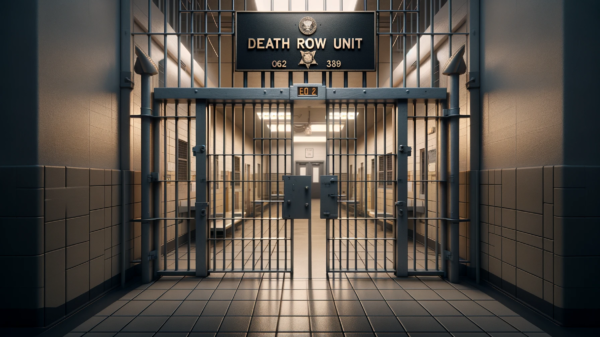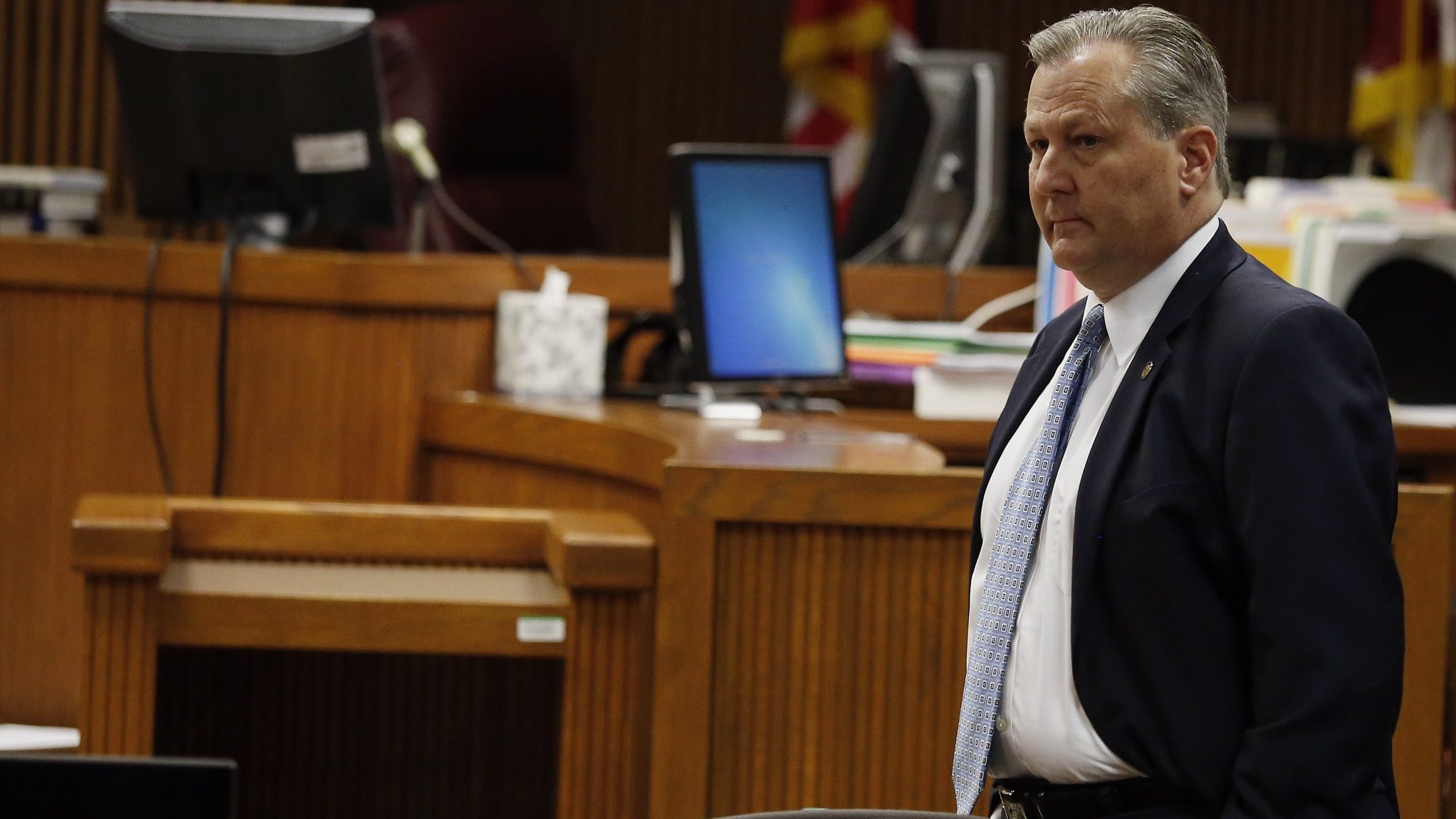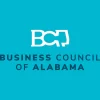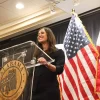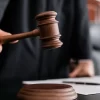It took nearly two years, but the Alabama Supreme Court has ruled on former Alabama House Speaker Mike Hubbard’s appeal of his felony ethics convictions.
The court upheld six of the 11 counts previously affirmed by the Alabama Court of Criminal Appeals. The Supreme Court reversed five of the counts upheld by the appeals court.
A Lee County jury convicted Hubbard in 2016 on 12 felony ethics charges.
The jury found that Hubbard violated the same laws he helped push through the Legislature in December 2010 — mostly for using his position as one of the most powerful men in state government to obtain lucrative “consulting” contracts with companies that he later used his influence to help.
Hubbard then launched a four-year appeal of that conviction. A judge sentenced Hubbard to four years in prison and eight years of probation, but he has yet to serve any time. That sentence, so far, still stands. It could be weeks or months for Hubbard to begin serving his sentence.
In August 2018, the Alabama Court of Criminal Appeals upheld the convictions on all but one of the counts, but Hubbard was allowed to stay out of prison on appeal bond.
The Supreme Court took nearly two years to rule on the case. It decided in June 2019 to hear oral arguments in the case even though many legal experts thought the Supreme Court would uphold the appeals’ court lengthy, 154-page decision.
Hubbard’s appeals have argued that prosecutors used overly broad definitions of the state’s ethics laws and engaged in prosecutorial misconduct and misused testimony to get the speaker convicted. Their essential argument was Hubbard didn’t knowingly violate the ethics laws and believed what he was doing was legal.
The appeals court had previously rejected all of those claims. Now the Supreme Court is tasking the appeals court with holding more proceedings consistent with the higher court’s opinion.
The Supreme Court upheld counts 12 and 13, on which Hubbard was found guilty of lobbying a government agency in exchange for compensation. It also upheld count 14 related to Hubbard’s use of his state staff and resources for personal benefit.
On count 11, the Supreme Court upheld Hubbard’s conviction on the charge that he used his official position for personal gain, when he used his position in performing a consulting contract, for which he was compensated $220,000 between October 2012 and July 2014.
The Supreme Court also upheld counts 6 and 10 related to Hubbard’s contracts with the two other companies, for which he was convicted of receiving a thing of value from a principal.
A “principal” is the “person or business which employs, hires, or otherwise retains a lobbyist.”
The Supreme Court reversed judgements related to Hubbard’s conviction on counts 16, 17, 18, 19 and 23, which related to Hubbard receiving investments from a principal into his failing printing business. Count 23 related to Hubbard soliciting help from a principal in finding new clients for the business.
The Supreme Court wrote that the state did not provide any evidence that Will Brooke, then the chairman of the Business Council of Alabama, was a “principal” even though BCA, the court wrote, was “indisputably” a principal because it hired lobbyists.
Prosecutors had argued that Brooke was a principal because he was at the helm of BCA at the time.
The court’s ruling calls into question whether the ethics laws apply to the top officials at the state’s largest lobbying groups, and whether they are individually protected from the state’s ban on principals providing payments and things of value to lawmakers and elected officials.
“Again, the key to whether an individual fits within the definition of ‘principal’ is the activity of the person, not the person’s title, position, or job description,” the Supreme Court wrote in its ruling. “The hallmark of a ‘principal’ is one that employs, hires, or retains a lobbyist; this will necessarily be determined on a case-by-case basis.”
The Supreme Court found the lower courts’ rulings to be too broad, sending these counts back down to the appeals court for further proceedings to finalize the verdict.
“The jury could not have reasonably concluded that Brooke was a principal based on the mere facts that the BCA was a principal and that Brooke was a member of its board and its executive committee,” the Supreme Court’s opinion reads. “The State was required to present sufficient evidence that Brooke himself was a ‘person or business which employs, hires, or otherwise retains a lobbyist.'”
The Supreme Court also wrote that it reversed those counts because the state failed to present evidence that Hubbard did not pay “full value” for the investments and “thus failed to prove the offense of receiving a thing of value.”
The court wrote that the motive for investing in Craftmaster, the failing printing business, was irrelevant as long as Brooke received full value for his investments. The motives for investing, the court wrote, “are irrelevant to whether Hubbard objectively paid, and the investors received, full value for their money.”
The ethics law has an exception for when an elected official pay “full value” for services.
“The State failed to present evidence that the value of each investor’s Craftmaster stock was less than $150,000,” the court wrote. “Although the company’s dire condition created a large element of risk in the investments, the potential for a commensurate return was, as confirmed by later events, real.”
Gov. Kay Ivey, in a statement Friday, said she accepted the Supreme Court’s findings, but that the state’s priority must be to be above reproach and avoid even the appearance of misconduct or abuse of office. Ivey became governor after former Gov. Robert Bentley resigned amid allegations of ethical lapses and campaign finance wrongdoing.
“I support seeking clarity on our state’s ethics laws to ensure those who want to abide by them may not be unfairly targeted,” Ivey said. “However, let me be abundantly clear, I do not support weakening a system that is meant to hold our elected officials accountable. The rule of law must be upheld.”
House Speaker Mac McCutcheon, R-Monrovia, said Friday that the Legislature must now look at revising the ethics laws.
“The Supreme Court’s ruling has made it clear that our ethics law has flaws that must be addressed,” McCutcheon said. “Our task now is to fix those flaws without weakening any of the provisions that make our ethics law among the toughest in the country.”
McCutcheon said that strict ethics requirements are important to deter corruption.
“By following the roadmap suggested by the State Supreme Court, we can preserve that deterrent while firmly holding those who abuse their office accountable for their actions,” McCutcheon said.













